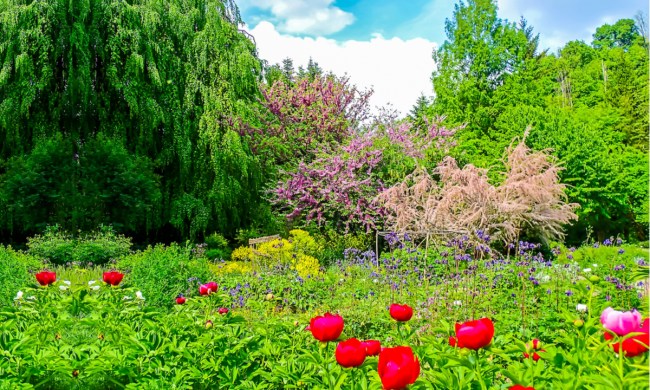Sunflowers are bright, cheerful flowers that can liven up almost any home or garden. Whether you want to grow a few potted sunflowers or grow a garden full of them, it’s a good idea to know what to expect. So, are sunflowers perennials that will return year after year, or are they annuals, that will need to be replanted each spring? It actually depends on the type of sunflower you have. This guide will answer all your questions, so you can grow your tall, beautiful sunflowers with confidence.
Are sunflowers perennials or annuals?

A little under half of all sunflower species are perennials, and most sunflower species are annuals. Of the roughly 80 total sunflower species, only around 38 of them are perennials. However, this divide is not entirely random. Most wild sunflowers are perennials, while the more domesticated or manufactured sunflower species are annuals. There are also some domesticated perennials, particularly those that are hybrids of domestic and wild sunflower species.
This has to do with why they were domesticated — for their seeds! Perennial sunflowers have seeds, but they primarily spread through roots, so their seeds are smaller and less plentiful. Annual sunflowers spread through seeds, so they tend to have more of them. As farmers and gardeners bred for larger, more plentiful seeds, it makes sense that they would cultivate more annual sunflower species.
How can you tell what type of sunflower you have?

The best way to tell if a sunflower is a perennial or annual is to look at the seed information before planting them. Seed packets or sellers should say if the sunflower is a perennial or an annual. If they don’t, check to see if they have the species name.
If the sunflowers are already planted, or no information is available on the seeds, there are a few less certain ways you can tell. As noted previously, annual sunflowers tend to have larger seeds and flowers. However, some hybrid perennials also have large flowers. You can also check the roots, but be careful not to damage them. Perennials can spread through their roots, and this ability comes from the rhizomes attached to their root systems. If you aren’t sure what to look for, the rhizomes look a bit like ginger.
Another difference that can help you determine what type of sunflower you have is timing. Annual sunflower seeds germinate more quickly, while perennial seeds tend to germinate more slowly. However, perennial sunflowers will reappear more quickly in the spring, since they are regrowing from an established root system rather than sprouting from new seeds.
Will annual sunflowers reseed themselves?

Yes, annual sunflowers will reseed at the end of the season. If you don’t collect the seed heads, the seeds will fall from the flower, wait through the winter, and begin germinating in the spring. If you’re growing sunflowers to use their seeds, you may want to consider leaving some seeds on the plant, or just setting some seeds to the side to plant in the spring.
Leaving the seed heads isn’t just a great way to get new sunflowers — it’s also an excellent way to invite birds and other wildlife to your garden! Plenty of your local critters will enjoy a sunflower seed snack, and they’ll spread some of the seeds to help new sunflowers grow.
Sunflowers are gorgeous, easy to grow, and a joy to have in the garden. Most sunflower species are also native to the U.S., making them a great addition to native pollinator and wildlife gardens. Now that you know which sunflowers are perennials and which are annuals, you can be prepared when planning your next garden. No matter which type of sunflower you choose, or how many you plan on growing, you’ll be delighted by these lovely flowers.




